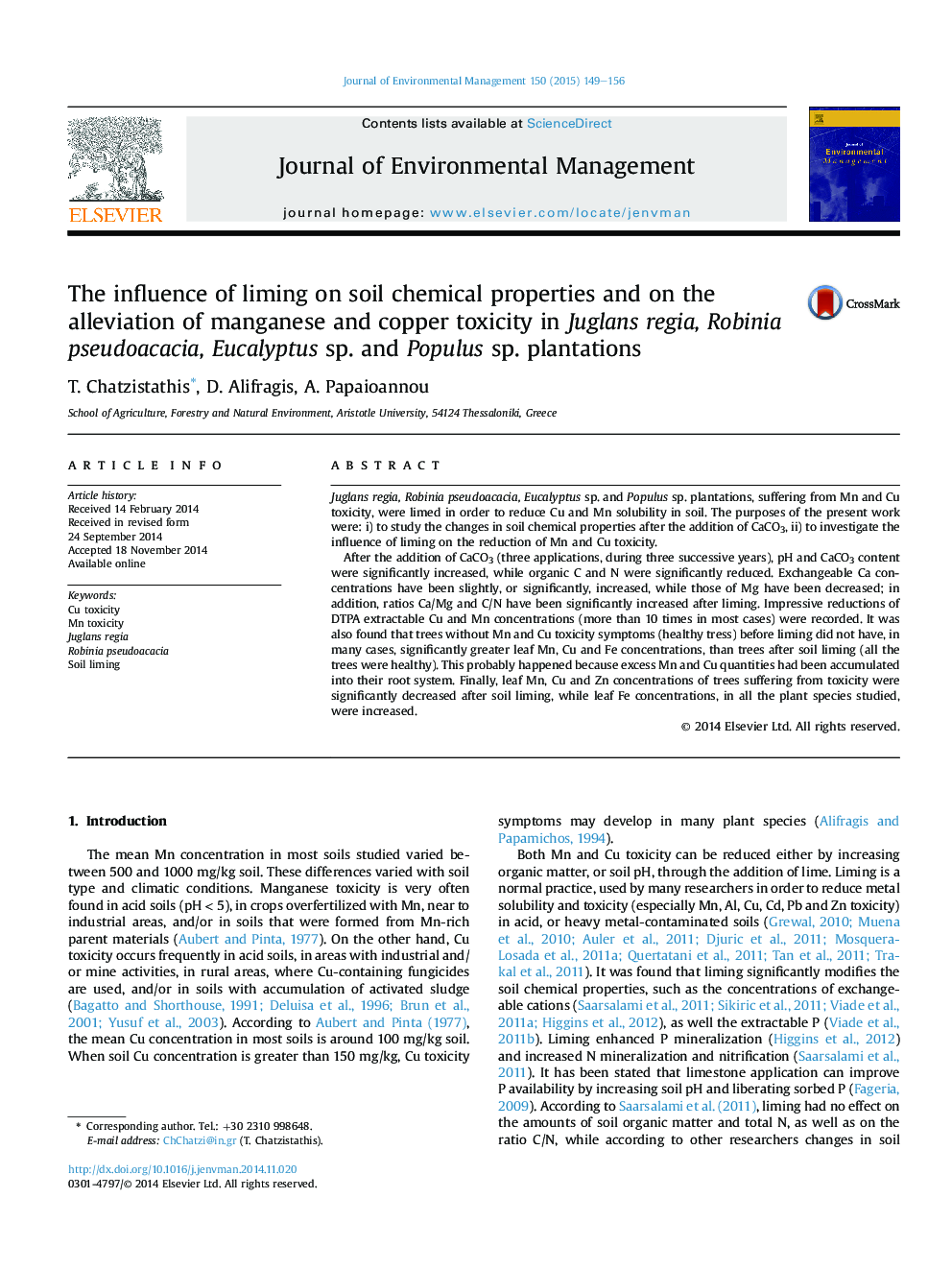| Article ID | Journal | Published Year | Pages | File Type |
|---|---|---|---|---|
| 7482715 | Journal of Environmental Management | 2015 | 8 Pages |
Abstract
After the addition of CaCO3 (three applications, during three successive years), pH and CaCO3 content were significantly increased, while organic C and N were significantly reduced. Exchangeable Ca concentrations have been slightly, or significantly, increased, while those of Mg have been decreased; in addition, ratios Ca/Mg and C/N have been significantly increased after liming. Impressive reductions of DTPA extractable Cu and Mn concentrations (more than 10 times in most cases) were recorded. It was also found that trees without Mn and Cu toxicity symptoms (healthy tress) before liming did not have, in many cases, significantly greater leaf Mn, Cu and Fe concentrations, than trees after soil liming (all the trees were healthy). This probably happened because excess Mn and Cu quantities had been accumulated into their root system. Finally, leaf Mn, Cu and Zn concentrations of trees suffering from toxicity were significantly decreased after soil liming, while leaf Fe concentrations, in all the plant species studied, were increased.
Related Topics
Physical Sciences and Engineering
Energy
Renewable Energy, Sustainability and the Environment
Authors
T. Chatzistathis, D. Alifragis, A. Papaioannou,
